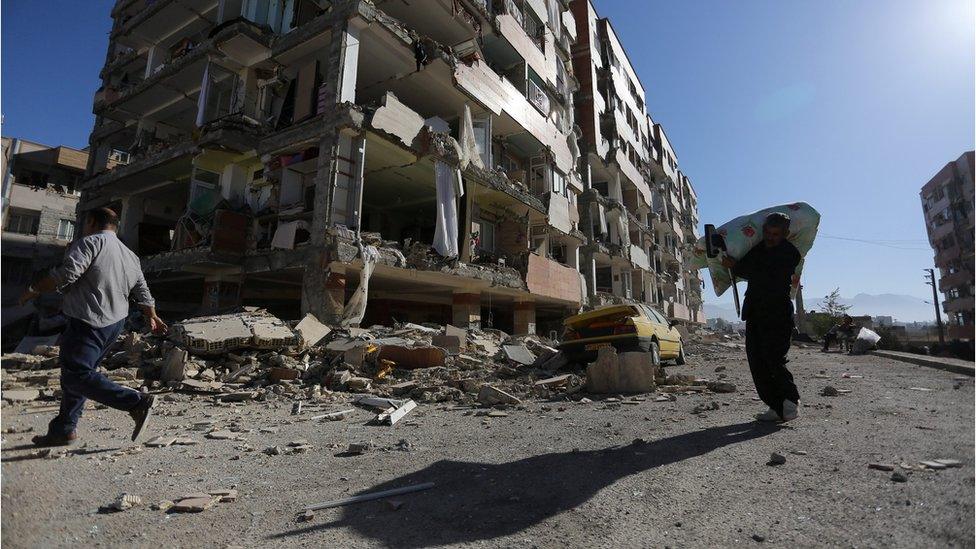Iran-Iraq earthquake: 'The villages have vanished'
- Published
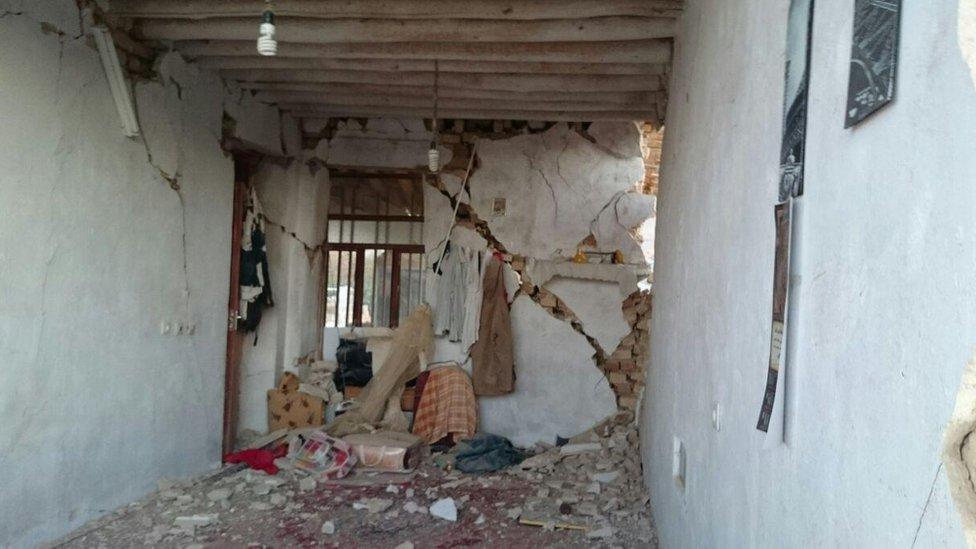
The earthquake has destroyed many buildings, injuring thousands and killing hundreds
A picture of widespread devastation is emerging from around the border region between Iraq and Iran after a 7.3 magnitude earthquake struck on Sunday evening.
Witnesses who spoke to the BBC have been describing conditions in the wake of the tremor.
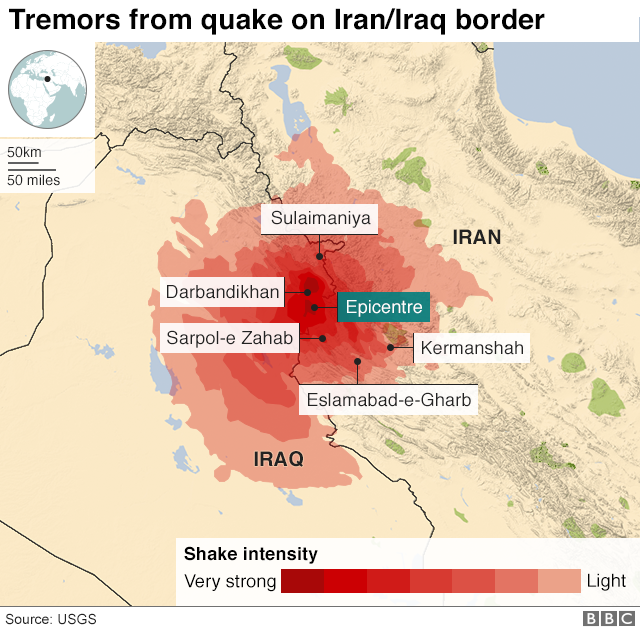
Khosrow: 'My aunt, cousin and my cousin's children died'
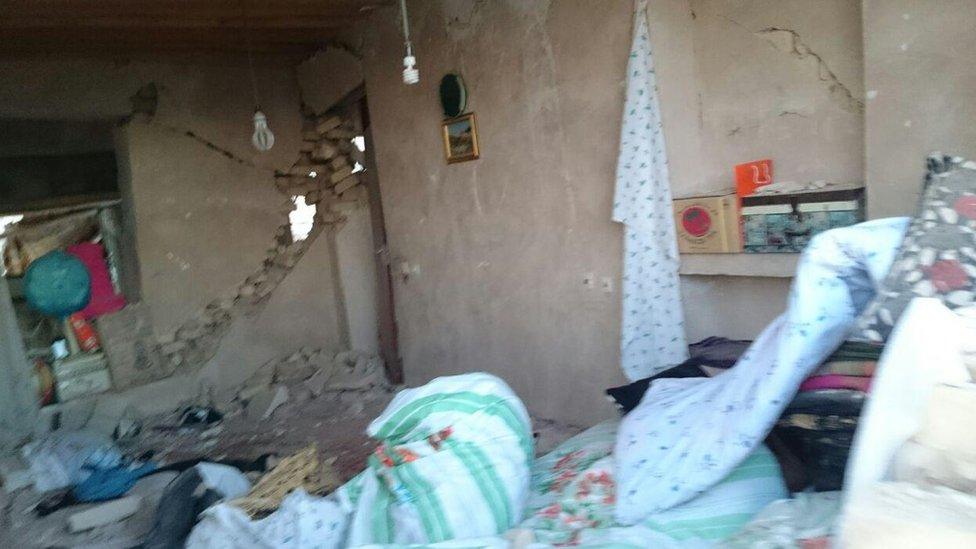
Several members of Khosrow's family died in the earthquake
Khosrow lives in a village near Sarpol-e Zahab, one of the worst-hit places, close to the Iraq border. He said members of his family have been killed and the village devastated.
"Walls have fallen on my sisters and father. I had to drag them out of the house.
"My mother is injured. My aunt, cousin and my cousin's children died," he said.
"The whole village is ruined.
"Graves are cracked and some of the bodies have come out the ground.
"There is no water. People are using water from the river. We have no food. We need water and warm clothes."

Amir: 'I think the death toll will rise'
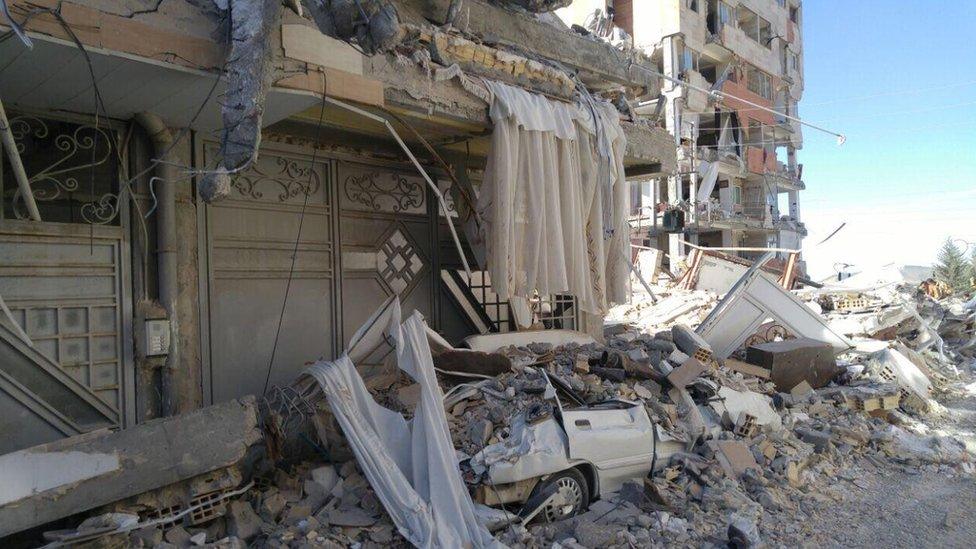
Destruction is widespread in some areas
Amir lives in Sarpol-e Zahab. He said up to 30% of the city had been destroyed.
"The Mehr social housing buildings are ruined," he said.
"In the city, 30% of the buildings are ruined.
"People need food and water. The rescue teams are in the town but I think the death toll will rise."

Mehrdad: 'The villages have vanished'
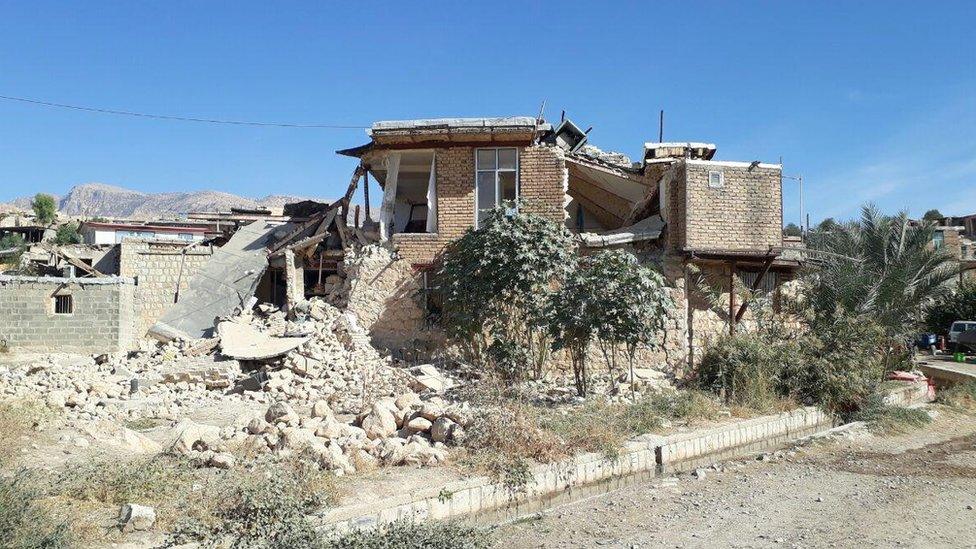
The quake caused many homes to collapse
Mehrdad's relatives in Kermanshah province are sheltering in tents after their homes were destroyed.
"I have visited the villages near the centre of the earthquake in Kermanshah to bring food and tents to my relatives," he said.
"The villages have vanished.
"People don't have enough food and water and need tents."

Salah: 'People are staying outside'
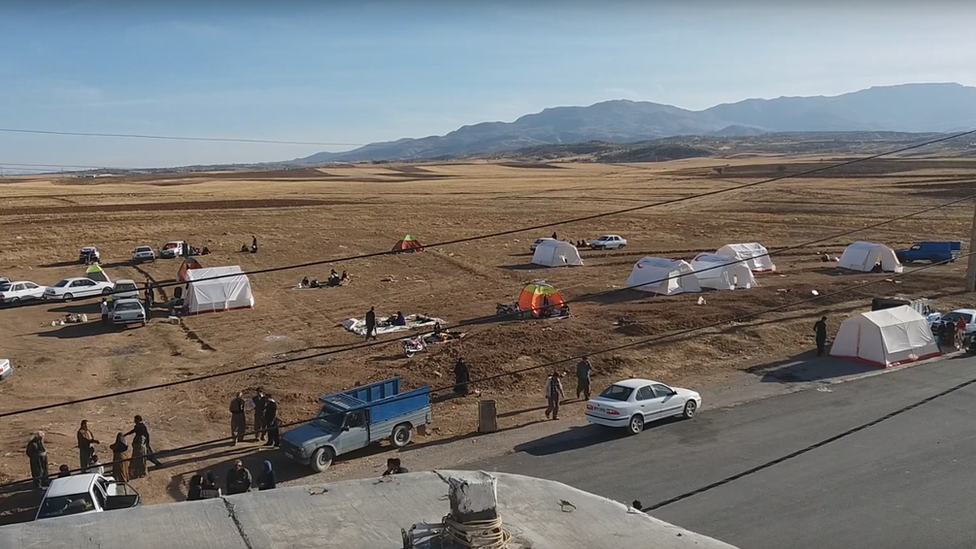
People are staying in tents in Kermanshah, but residents say they urgently need supplies
Salah lives in the county of Salas-e Babajani, in Kermanshah province.
"We are close to the centre of the quake," he said.
"People are staying outside.
"There are only a few tents and 50-80% of the houses are ruined.
"There is no food and medicine."
Compiled by UGC and Social News team and BBC Persian
- Published13 November 2017
